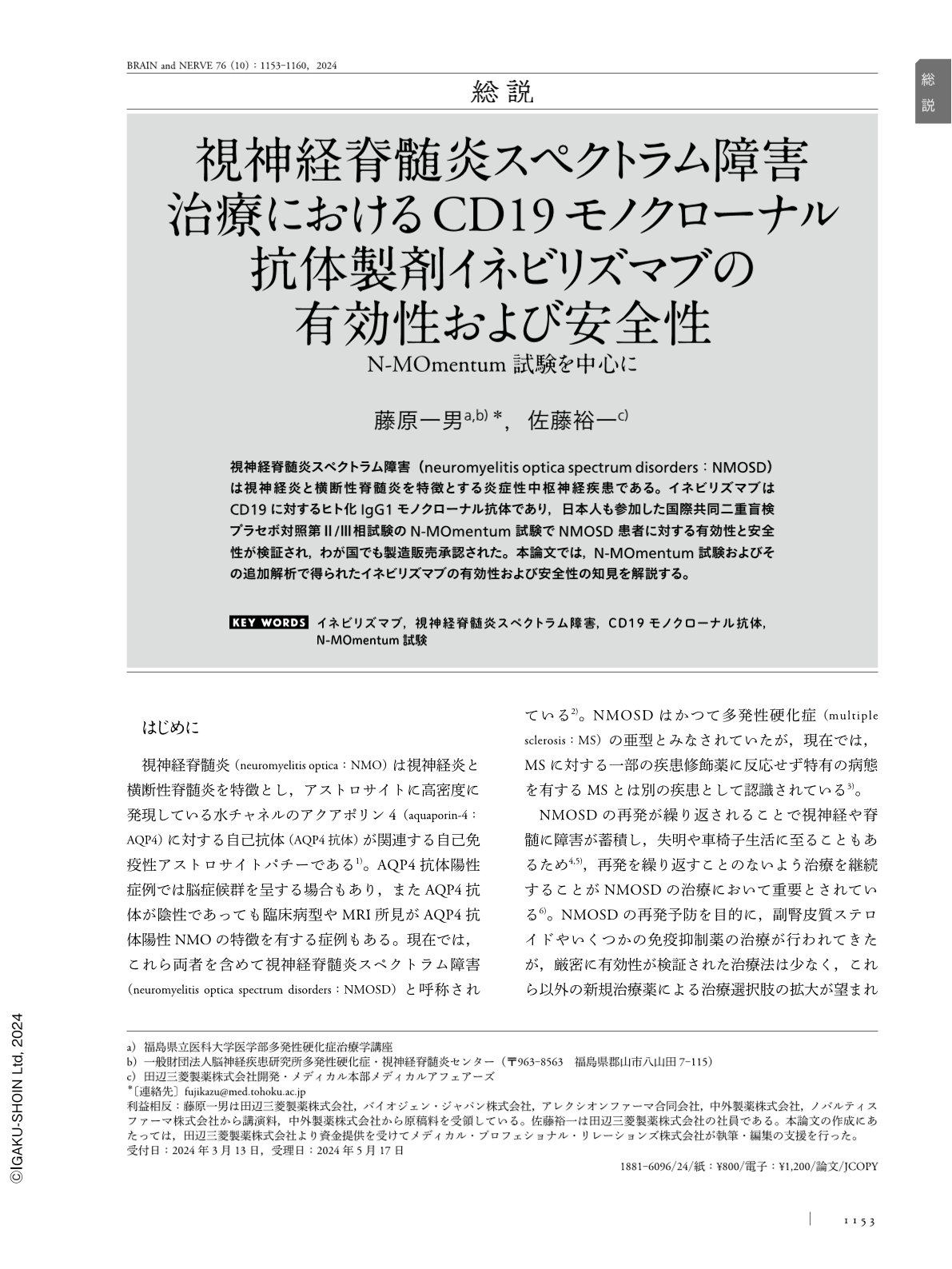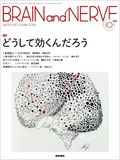Japanese
English
- 有料閲覧
- Abstract 文献概要
- 1ページ目 Look Inside
- 参考文献 Reference
視神経脊髄炎スペクトラム障害(neuromyelitis optica spectrum disorders:NMOSD)は視神経炎と横断性脊髄炎を特徴とする炎症性中枢神経疾患である。イネビリズマブはCD19に対するヒト化IgG1モノクローナル抗体であり,日本人も参加した国際共同二重盲検プラセボ対照第Ⅱ/Ⅲ相試験のN-MOmentum試験でNMOSD患者に対する有効性と安全性が検証され,わが国でも製造販売承認された。本論文では,N-MOmentum試験およびその追加解析で得られたイネビリズマブの有効性および安全性の知見を解説する。
Abstract
Neuromyelitis optica spectrum disorder (NMOSD) is an autoimmune astrocytopathic disease of the central nervous system characterized by severe optic neuritis and transverse myelitis. The antibody against aquaporin 4 (AQP4), a water channel mainly expressed in astrocytes, is specific to NMOSD and may be detected in >70% of all cases. Inebilizumab is a humanized IgG1 monoclonal antibody against CD19. Anti-AQP4 antibodies are produced by CD19-positive plasmablasts, and inebilizumab administration significantly reduces the number of CD19-positive B cells and has therapeutic effects on NMOSD. The efficacy and safety of inebilizumab have been verified in the N-MOmentum trial, an international double-blind, placebo-controlled phase II/III study, in which Japanese patients also participated. Inebilizumab was approved for the treatment of NMOSD with AQP4-IgG in Japan in March 2021. In this review, we summarize the efficacy and safety of inebilizumab in the treatment of NMOSD and, focus on findings from the primary and additional analyses of the N-MOmentum trial. These results suggest that inebilizumab is effective and safe in preventing the recurrence of NMOSD in populations with different backgrounds and that long-term treatment with inebilizumab is beneficial.

Copyright © 2024, Igaku-Shoin Ltd. All rights reserved.


